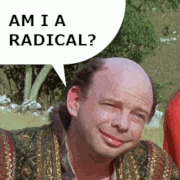|
Helsing posted:I saw an interesting proposal once that suggested replacing i/p laws as the funding mechanism for artwork and entertainment with a voucher system. Everyone has a certain number of vouchers each year, say 1000 of them total, and can choose to give those vouchers to any artist they please. Each voucher the artist receives is equivalent to X funding from the government. At least theoretically you'd still have a decentralized marketplace system incentive's people to come up with popular entertainment but there'd also be opportunities for less popular artists to develop a reliable niche audience. If you had diverse tastes you could spread your vouchers widely but if you really wanted to see a specific project realized you could dedicate most or all of your vouchers to a single person or group. If inequality is a concern you could at least partially mitigate it by making vouchers non-transferable and making it so they expire after a given period. That doesn't seem like that solves the need for copyright. Like if I wrote a short story that sold 4 copies, then evil walt disney bought one copy and then filmed a billion dollar (billion voucher) movie out of my story I'd probably want some compensation or say on that. And I'd need some system to say "hey, this is mine" to do that.
|
|
|
|

|
| # ? May 3, 2024 23:50 |
|
Helsing posted:The average person is unlikely to have strong opinions on medical patents or rules governing academic research but they sure do like being able to watch all the latest television shows and films online. For a while there it seemed like piracy was dying out thanks to easy available and relatively inexpensive streaming services but with the recent trend toward everyone trying to set up their own $20 a month netflix clone full of exclusive content I feel like piracy is due to make a comeback and I wonder if that has a subtle influence over how people think about intellectual property in general. Not that I think this is going to become a hot button political issue but it makes sense to me that people would be aware of these issues and more likely to have opinions about them right now compared to in the past. I mean there is the fact that I don't think anyone in our generation who extensively uses torrent sites to watch movies and TV shows like Game of Thrones even conceptualizes it as theft, it's just a way to get their entertainment. This has unfortunate knock-on effects like people offering artists "exposure" to work on projects instead of payment for labour, but I wager that's more a product of our current global economy that devalues work unless it there's enough capital to insure its intellectual property protection. Disney's live action remakes are an interesting example. From what I understand they don't have to pay the script writers or story board artists for the original movie, but can effectively remake the movie and take in a greater share of the profits.
|
|
|
|
Owlofcreamcheese posted:That doesn't seem like that solves the need for copyright. That's the hardest part of all of this: Protecting independent artists from more moneyed interests that also isn't abuse-able by those moneyed interests.
|
|
|
|
The comparison to theft never made any sense - the bad part about stealing something from someone is that they no longer have it. The fact that, after you steal, you have something nice you want is actually good. It's just that the bad feeling the other guy has, that of having something they worked hard for taken from them, is generally worse than the good feeling of getting something. This sort of reasoning lends itself to thinking about exceptions also - it naturally handles the starving person stealing food, as the comparison is no longer true - starving to death is obviously worse than having replaceable food stolen. All of this makes calling downloading a movie "stealing" absurd. You can call it unethical, or copyright infringement, or describe the negative consequences of large groups of people choosing to download movies, but there is no theft involved, no one doesn't have a movie because you downloaded it.
|
|
|
|
Crain posted:That's the hardest part of all of this: Protecting independent artists from more moneyed interests that also isn't abuse-able by those moneyed interests. Disney shouldn't get to have a thousand years of darkness to control everything eternally with an iron fist, but to have media at all pretty much requires some sort of framework to grant the creators some sort of limited monopoly for at least some amount of time. Like it wouldn't just be the little guy, a 100 million dollar movie isn't better than a 50 million dollar movie, but no one would really want every movie to have a max budget of 2000 bucks or something because every movie that came out could only sell like 10 copies before people just bought up an original and put it in their copier machine and sold the results for half price. You really just gotta have some minimum framework of who owns what.
|
|
|
|
I recommend very vocally advocating for programs like UBI and M4A alongside arguments for curtailing IP laws. That way you remove the "starving artists" counterargument from the equation, and you get to see what the artists you're arguing with are really concerned about.
|
|
|
|
Crain posted:I think there's an argument around authenticity in there. Because with studios like The Asylum that skirt copyright your example is already the case in all but the title and character names. The Transmorphers movies didn't really supply any competition to the Transformers movies. Authenticity has value but part of that value is the assumption that the thing considered authentic is guaranteed to be authentic... because of copyright. Severely shrinking the timetable down will impact that. It probably wouldn't matter as much 30-40 years later (or even 15-20 years) but 3-4 months is not the same. quote:Again, we kinda deal with this in comics as it is. See the Mark Miller version of Captain America, Frank Miller's Batman who are extremely right wing versions of those characters that kind of spit in the face of the established "ethos" of those characters. The audience already differentiates between many different versions. Other than a commercial argument here, you're running into "Death of the Author" territory. Additionally, AFAIK no one is making a mass market version of Ultimate Cap or DKR Bats, and the "audience" you're referring to is pretty narrow, vs the extremely massive and generic "superman" audience who don't read any comics.
|
|
|
|
Zachack posted:Authenticity has value but part of that value is the assumption that the thing considered authentic is guaranteed to be authentic... because of copyright. Severely shrinking the timetable down will impact that. It probably wouldn't matter as much 30-40 years later (or even 15-20 years) but 3-4 months is not the same. This is explicitly not what copyright is for. Copyright is supposed to be the bribe society gives out to to encourage making art, not a guarantee of source or quality. Trademarks are for authenticity. Disney trademarks "Transformers" as a movie title, they get exclusive right to make a movie "Transformers II". That doesn't have anything to do with the copyright they also have on the movie content and lasts forever if they keep using the name and paying the registration fees. They can also force you to change the name of your "Transformers" TV show because they can argue it would confuse a typical consumer about the source. When the Transformers copyright expires, you can sell copies of Disney's movies and make your own movies where Optimus Prime fights Nazi's or whatever. Without the trademark, you still can't market and sell you movie as a Transformers movie though.
|
|
|
|
Foxfire_ posted:This is explicitly not what copyright is for. Copyright is supposed to be the bribe society gives out to to encourage making art, not a guarantee of source or quality. You're right and I'm confusing my terms, but I was responding to a conversation that included massively restricting trademarks at the same time, including restricting copyright and trademarks into a "pick one" category.
|
|
|
|
My own feeling about artistic copyright is that it should end with the death of the artist, and go straight into public domain, no if buts or whatevers, no one can benefit financially whether it be relatives, record companies, or publishers. Being territorial with one's art is understandable but wrong-headed: its not exclusively yours the minute you allow others to see or hear it, that's actually where a measure of public domain begins. You may as well demand to own the cultural conversation about it, which is precisely what current copyright law chills. Maybe people have forgotten the overzealous deployment of lawyers by JK Rowling, but I haven't, it was very small-minded, nasty and not a little hypocritical.
|
|
|
|
ewe2 posted:My own feeling about artistic copyright is that it should end with the death of the artist, and go straight into public domain, no if buts or whatevers, no one can benefit financially whether it be relatives, record companies, or publishers. Being territorial with one's art is understandable but wrong-headed: its not exclusively yours the minute you allow others to see or hear it, that's actually where a measure of public domain begins. You may as well demand to own the cultural conversation about it, which is precisely what current copyright law chills.
|
|
|
|
MSDOS KAPITAL posted:I feel this lowers the probability of asoiaf ever being finished, and must therefore oppose it on those grounds. it increases the probability because if it's finished it wn't be by grrm
|
|
|
|
While acknowledging itís not this simple, one thing that fundamentally bothers me about copyright is that if I want to keep getting paid, I have to keep doing work, whereas artists expect to keep getting paid forever for doing work once. The second thing is that someone could decide to sit on the cure for cancer.
|
|
|
|
Zachack posted:[...] if 4 months after Transformers comes out Asylum can take any part of Transformers, possibly contract through the CG house that has a bunch of pre-built CG models, and mash together a new set of scenes mixed with old scenes that look professional enough, all while literally calling it Transformers 2. And ten other studios are doing the same. The CG models themselves would count as a discrete item. So those wouldn't be transferable, just like any other piece of physical art. So those would be transferred to studio control after production is completed. Just like how you can't go and take the original Mona Lisa home simply because it's Public Domain. The studio doesn't have to give those out anymore than it has to give out the physical props, sets, and edit software it used to make the movie. Unless you meant the CG house would just have generic Transformer models, and not the exact ones used for the first film, on hand since they'd be in the public domain.
|
|
|
|
Crain posted:The CG models themselves would count as a discrete item. So those wouldn't be transferable, just like any other piece of physical art. So those would be transferred to studio control after production is completed. Just like how you can't go and take the original Mona Lisa home simply because it's Public Domain. The studio doesn't have to give those out anymore than it has to give out the physical props, sets, and edit software it used to make the movie. Are you saying they would lock the models in a safe and have to physically prevent the workers from sneaking out .obj files in sd cards in their shoe, or are you saying you would have copyright and it'd just apply so companies could own their assets indefinitely but the movie itself would go out in 4 months or whatever?
|
|
|
|
remember when universal sued nintendo over donkey kong and it turned out universal had previously argued king kong was in the public domain.
|
|
|
|
Owlofcreamcheese posted:Are you saying they would lock the models in a safe and have to physically prevent the workers from sneaking out .obj files in sd cards in their shoe, or are you saying you would have copyright and it'd just apply so companies could own their assets indefinitely but the movie itself would go out in 4 months or whatever? I said theyíd count the same as a prop or set piece. Sure an employee could sneak it out but just because the character or story is public domain doesnít mean every component a studio used is free for the public to have. It would be no different if the movie was made with 100% practical effects and the studio commissioned a fully functional Optimus robot. That physical product is theirs to do what they want with, unless they just left it with the effects house to what they want with. But usually part of the production contracts state that at the close of production all that stuff is transferred to the studio. Copyright wouldnít cover this particular aspect anymore than it would mean Mark Wahlburg has to come by to shoot new scenes just because the one his character was in is now public domain.
|
|
|
|
ewe2 posted:My own feeling about artistic copyright is that it should end with the death of the artist, and go straight into public domain, no if buts or whatevers, no one can benefit financially whether it be relatives, record companies, or publishers. Being territorial with one's art is understandable but wrong-headed: its not exclusively yours the minute you allow others to see or hear it, that's actually where a measure of public domain begins. You may as well demand to own the cultural conversation about it, which is precisely what current copyright law chills. So I'm pretty conflicted about copyright law. Obviously the situation with The Mouse is absurd, but as an act of pure self-interest, I think "life of author + (certain amount of time)" is pretty reasonable, especially since my sister and I are settled in our lives now, but if Mom had died in a car crash 20 years ago, we'd have been orphans whose breadwinning IP would be instantly in public domain and unavailable to us. I also think about Confederacy of Dunces, one of the best books ever written, which was discovered only after John Kennedy Toole's suicide. Would it have been published (and propogated) if Toole's mother wasn't able to get some amount of money for it? We forget in the current day of eBooks how easy distribution is - but in 1983 no one is printing hundreds of thousands of copies of a book with no copyright, no matter how good it is. I guess "The Bible" is a counterpoint, but that's a pretty edge case.
|
|
|
|
Crain posted:
I still can't tell if you mean "copyright should exist enough to treat these things as the same" or if you mean wild west no copyright but it will be fine because the studio can sweep in and sterilize everyone it worked with to make sure they have no physical possession of any part of the digital media, but if a optimus prime dot jpg cd rolled behind a desk and goes unnoticed they should be able to release movies using it and advertise them as transformers movies.
|
|
|
|
Owlofcreamcheese posted:I still can't tell if you mean "copyright should exist enough to treat these things as the same" or if you mean wild west no copyright but it will be fine because the studio can sweep in and sterilize everyone it worked with to make sure they have no physical possession of any part of the digital media, but if a optimus prime dot jpg cd rolled behind a desk and goes unnoticed they should be able to release movies using it and advertise them as transformers movies. Sorry, I donít know how much simpler I can make it. Do you think Charlie Chaplinís The Pilgrim being in the public domain means you can roll up to The Smithsonian and take his hat for a remake?
|
|
|
|
Avalerion posted:While acknowledging itís not this simple, one thing that fundamentally bothers me about copyright is that if I want to keep getting paid, I have to keep doing work, whereas artists expect to keep getting paid forever for doing work once. To be fair, with most other types of work you can reasonably expect to be paid as long as you keep doing work. With creative work however, that isn't at all guaranteed, especially without copyright - if anyone could distribute their creations without their consent, they will see none of the profit their original work generated, as it would all go to the distributors.
|
|
|
|
I think one of the issues with intellectual property specifically as it pertains to fictional work is the sense of "moral ownership" beyond the legal/monetary consequences of copyright. Look at all the people who bitched about George Lucas loving up the original Star Wars movies with his re-cuts and edits and whatnot, like it ruined their childhood. He clearly had the legal right to do so, and profit off the results, but rightly or wrongly a lot of people felt very strongly that he shouldn't do so -- that the original Star Wars films were somehow a part of our collective culture and therefore should not belong to a specific rights-holder. People have a strong emotional attachment to art and media, and it further complicates what would otherwise be a really simple issue of "you get X years to profit off this thing, then you don't get to do so any more; if you don't like it, then gently caress off and cry in the corner." If Mickey Mouse were a simple widget or whatever that no one has any attachment to, this whole debate would be so easily solved by comparison, but we're in this weird twilight zone where a drawing of a cartoon mouse is wrapped up in our cultural idea of childhood and innocence and a whole bunch of really complex poo poo, and Disney is manipulating that to maintain the right to commercially exploit this image in virtual perpetuity. If we were to simply reduce the argument, without any of that attached emotion, to "how long should artists be able to profit off their creations?" it would be an entirely different, purely economical debate.
|
|
|
|
Easy Diff posted:I've been reading/following this thread pretty closely, since my mother happens to be a NYT-bestselling author with a pretty substantial (30+ novels) library that my sister and I stand to inherit when she passes (she's in her 70s now). Monetizing it post-death will be basically adding an additional six-figure income to each of our households, and copyright is the only reason that windfall exists. Another problem with setting a copyright terminus at the death of the author is it creates one hell of a perverse incentive for publishers to kill the author. Not really something you want to encourage. Honestly with the goal of optimizing social gain I can't think of any reason to take the life of the author into account. 30-50 years from the date of creation or registration is plenty of time to incentivize the creation of creative works. On the subject of inheritance, is IP valued like any other property for the purposes of estate taxes? Of course the current limit in the United States is so absurdly high I don't think it would be relevant to your situation Easy Diff, but still, I wonder. Assuming your mother's IP produced $200,000 a year in income for 20 years, it would be equivalent in value to about six million dollars in 20 year treasury bonds. Split two ways I don't think that would have any estate tax, but theoretically if the limit were lower, I'd hope it would be taxed like any other property.
|
|
|
|
Squalid posted:Another problem with setting a copyright terminus at the death of the author is it creates one hell of a perverse incentive for publishers to kill the author. Not really something you want to encourage. Brb, writing dustopian short story
|
|
|
|
Easy Diff posted:Wouldn't it be the reverse? With the authors death, all the IP would be freely distributable, by anyone? So the publishing house would force families to extend end of life care as long as possible? yeah actually I guess so, here I was stuck thinking in the dead paradigm of the pre-digital file sharing era, when you actually had to buy physical books made of paper to read a novel. Shows how much I know about publishing.
|
|
|
|
Crain posted:Sorry, I donít know how much simpler I can make it. I still don't understand if you mean 'the physical object of Optimus prime dot jpg will be held in a physically secure location" or if you mean "well we'd have laws to treat the jpg the same as a model".
|
|
|
|
Owlofcreamcheese posted:That doesn't seem like that solves the need for copyright. Well, since we're imagining a somewhat extreme scenario where copy-right law is gone presumably Disney has lost most of the advantages that allowed it to dominate the entertainment market. Also hopefully the same movement that changed I/P laws has also enacted some anti-monopoly laws that effectively break up Disney's corporate empire. So no more Disney strong arming theatres behind the scenes or using its vast monopoly power to distort market outcomes. We might also imagine that such a society does something similar to what YouTube does in many cities and provides publicly available recording spaces and access to other kinds of equipment and expertise. Perhaps local technical, makeup or film or sound engineering schools have internship programs to match their students with would-be creators for college credit (the colleges themselves naturally being tuition free). Maybe if you earn a certain number of vouchers per year you get access to additional space and technical equipment, etc. By socializing many of the resources that are normally only available to professional creators and using public resources to give everyone a better opportunity to participate in the creative process you'd greatly expand the number of people who would at least have the option to make creative contributions. Under such conditions, if there was such a massive divergence in how many vouchers your story made and how many vouchers the Disney film version made then presumably your story wasn't that significant a contribution to the venture. Besides, you can still use the success of the film adaptation to garner for attention for your own work. This system is not perfect but its principle aim is to expand the opportunity to make artistic contributions to society. It's not principally aimed at making a few people hyper rich by allowing the next JK Rowling to aggressively police how their output is used by the larger culture. You'd get much more upfront support but have less prospects of a massive reward in the future, which I think is a good tradeoff compared to how we do things now. Dreylad posted:I mean there is the fact that I don't think anyone in our generation who extensively uses torrent sites to watch movies and TV shows like Game of Thrones even conceptualizes it as theft, it's just a way to get their entertainment. This has unfortunate knock-on effects like people offering artists "exposure" to work on projects instead of payment for labour, but I wager that's more a product of our current global economy that devalues work unless it there's enough capital to insure its intellectual property protection. It's also produced this weird situation where all the culturally resonant symbols, images and songs we grow up with tend to be controlled by vast corporate entities. It's a de facto enclosure of the cultural commons.
|
|
|
|
Owlofcreamcheese posted:I still don't understand if you mean 'the physical object of Optimus prime dot jpg will be held in a physically secure location" or if you mean "well we'd have laws to treat the jpg the same as a model". Why are you hung up on .jpgs when I was talking about CG models? Is the depiction of Charlie Chaplin's hat in his movies the same thing as the actual hat sitting in a museum? The CG model, that you'd put into an animation program to animate and then record to produce the footage that you'd edit into the final movie, is different from the image that is present in the final movie. I'm not trying to explain The Transubstantiation here, they're just different things. If a copyright expires: The public can use: The movie in question, the intellectual property of the likeness of the characters, and the story (and any other aspect of the intellectual property). The public can't use: Production sets, props, studio property, custom rendering software the studio had purpose built, etc. Something entering the Public Domain doesn't mean that every single aspect of the production is also made freely available to the public. Someone could make their own CG model of Optimus Prime to use. But one that was purchased by the studio isn't in the Public Domain any more than a physical prop is beyond it's visual presence in the work in question. Unless the studio decides to share it. So you can throw Transformers.mp4 into Premiere Pro or After Effects and edit the scenes featuring Optimus all you want, but you can't demand that the studio send you Optimus_high_detail_final.obj so you can throw it in blender and make it do a fortnite dance.
|
|
|
|
Crain posted:Unless the studio decides to share it. This is where i am getting lost with your explanations, are you saying there would be copyright and you'd need permission or are you saying it'd be the studio's responsibility to keep every copy physically secured and if someone could get out of the building carrying the shrek model data he should be able to get to make shrek movies, but the studios would just check real hard to stop that from happening?
|
|
|
|
Owlofcreamcheese posted:This is where i am getting lost with your explanations, are you saying there would be copyright and you'd need permission or are you saying it'd be the studio's responsibility to keep every copy physically secured and if someone could get out of the building carrying the shrek model data he should be able to get to make shrek movies, but the studios would just check real hard to stop that from happening? This is essentially how trade secrets (like the Coke formula or the specific mix of KFC's 11 herbs and spices) work, so you're just being obtuse and wrong (again)
|
|
|
|
Owlofcreamcheese posted:This is where i am getting lost with your explanations, are you saying there would be copyright and you'd need permission or are you saying it'd be the studio's responsibility to keep every copy physically secured and if someone could get out of the building carrying the shrek model data he should be able to get to make shrek movies, but the studios would just check real hard to stop that from happening? What hinges on this issue? This seems like such a minor and pedantic concern. What's the bad outcome you're worried is going to happen? It's not like burglary will suddenly be legal and if a studio owned rendering of shrek somehow falls into public hands I'm not even clear on what the supposed loss for society is, provided no laws were broken?
|
|
|
|
Owlofcreamcheese posted:This is where i am getting lost with your explanations, are you saying there would be copyright and you'd need permission or are you saying it'd be the studio's responsibility to keep every copy physically secured and if someone could get out of the building carrying the shrek model data he should be able to get to make shrek movies, but the studios would just check real hard to stop that from happening? Thatís not relevant to copyright. The actual cg model is their property and is treated exactly the same as an office desk or work station. They can store it however they want and if you steal it you are committing burglary and will be prosecuted regardless of their security measures.
|
|
|
|
One anecdotal extreme of creative control I can offer is my cousin twice-removed, a diagnosed schizophrenic painter who, while a decent painter, would destroy his paintings if he found out anyone but him had looked at them, claiming that they were then "ruined".
|
|
|
|
Avalerion posted:The second thing is that someone could decide to sit on the cure for cancer. Do you feel it would be moral for the government to force the person to reveal their cure for cancer?
|
|
|
|
Kerning Chameleon posted:One anecdotal extreme of creative control I can offer is my cousin twice-removed, a diagnosed schizophrenic painter who, while a decent painter, would destroy his paintings if he found out anyone but him had looked at them, claiming that they were then "ruined". Makes me think of those painters who hid paintings inside their walls or painted over them thinking ďHa, now no one will be able to see this art without destroying something else they love!Ē And then we invented x-rays/infrared/and other penetrative imaging technologies.
|
|
|
|
SimonCat posted:Do you feel it would be moral for the government to force the person to reveal their cure for cancer? Yes.
|
|
|
|
A lone mad genius toiling in utter isolation in a lab like some kind of 21st century Victor Frankenstein is definitely the most plausible person to come up with a cure for cancer and it's very important we have an extended debate about whether its ok to compel this individual to share their secrets were this very plausible scenario to come to pass. Meanwhile in the real world the government and university system are already the backbone of funding for most basic research. Meanwhile society pays an exorbitant cost to rent-seeking entities that control important patents and charge way above the cost of production for the use of those patents. If we took away the I/P enabled rent-seeking behaviour we would collectively save so much money that it would be trivially easy to redirect some of the savings toward more basic research (now taking place in the public domain) without having to run so much of our healthcare policy through parasitic private entities. We don't need I/P to finance medical research, we already socialize much of the costs for such research so we might as well socialize the benefits as well since doing so will leave everyone who isn't skimming off the rent-seeking grift better off.
|
|
|
|
Crain posted:Thatís not relevant to copyright. The actual cg model is their property and is treated exactly the same as an office desk or work station. They can store it however they want and if you steal it you are committing burglary and will be prosecuted regardless of their security measures. But "stealing" a cg model only has any meaning in a society with intellectual property laws. If I took my desk home with me, that's stealing because then my company doesn't have that desk anymore. If I take a copy of desk.mdl home with me on a thumbdrive that I snuck in to the office, that doesn't deprive anyone of anything except the ability to profit from something that derives most of it's profitibility from the artificial scarcity created by ip laws. However, as Easy Diff said, trade secrets are probably the ip laws to use in a future where we have reworked copyright laws in the manner you suggest.
|
|
|
|
SimonCat posted:Do you feel it would be moral for the government to force the person to reveal their cure for cancer? Would depend on the methods employed, ideally they'd just reverse engineer it or something.
|
|
|
|

|
| # ? May 3, 2024 23:50 |
|
Jethro posted:But "stealing" a cg model only has any meaning in a society with intellectual property laws. If I took my desk home with me, that's stealing because then my company doesn't have that desk anymore. If I take a copy of desk.mdl home with me on a thumbdrive that I snuck in to the office, that doesn't deprive anyone of anything except the ability to profit from something that derives most of it's profitibility from the artificial scarcity created by ip laws. Yeah, I know in this case weíre circling back on the piracy argument since its digital. But Iím making a distinction due to the fact that a movie rip of a released film has already been intended for public consumption and a rigged animation model isnít. Agreedo on the trade secrets argument as well.
|
|
|





























